Will East Asheville's Ramada remain housing for homeless after foreclosure?
ASHEVILLE - The new owners of the Ramada Inn in East Asheville say their intention for the property is for it to remain housing for the city’s homeless.
Set above the River Ridge shopping mall on a low hill, the hotel and its looping parking lot is partitioned off by a severe wooden fence. The property’s two buildings are connected by a covered walkway, pink stucco siding flaking away. Looking eastward from the rise, mountain ridgelines roll across the horizon.
The fate of the Ramada was thrown into doubt after developer Shangri-La lost the property to foreclosure in late December and abruptly left town, leaving behind litigation — like a lawsuit filed, and later won, by contractor Beverly-Grant, alleging nonpayment for its work done at the property — a slew of broken promises and their property manager Eric Hall, who only found out about the foreclosure when his paychecks stopped coming.
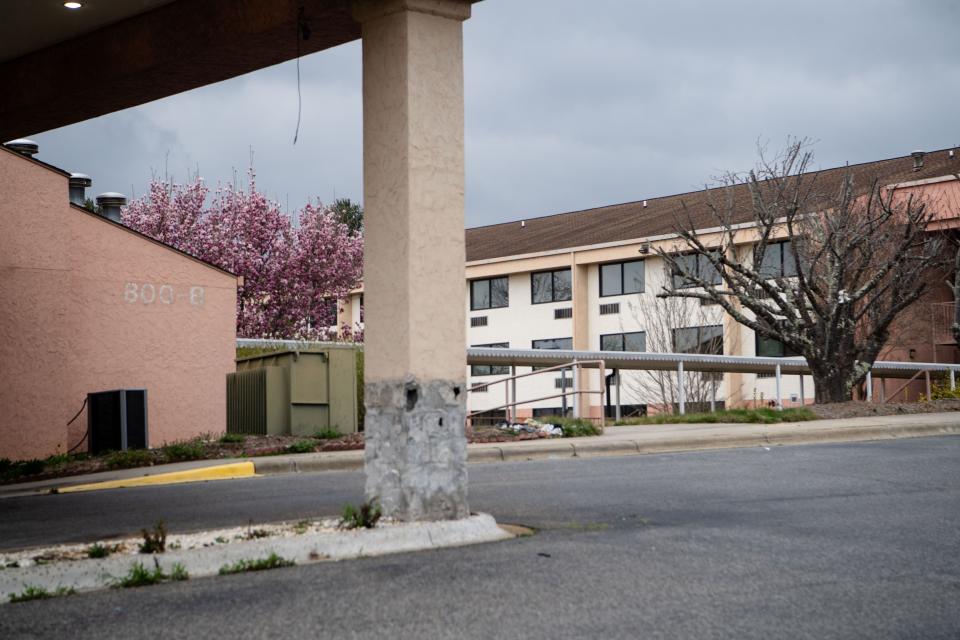
“The property is just sitting here,” Hall said. “And it should be housing people who need help.”
The former Ramada Inn parcel is deed restricted for permanent supportive housing for the next 50 years.
“It’s our belief and current understanding that the highest and best use for all stakeholders continues to be redevelopment of the former hotel into supportive housing,” Wesley Carpenter, co-founder and managing partner at Connecticut-based lender Stormfield Capital, told the Citizen Times in early March.
“So we, now as the current owner, are in active conversations with a number of hyper-local and regional, not-for-profits who are experienced in not only developing but also running these types of facilities.”
Future unknown
The city secured the deed restriction when it transferred its real estate contract to for-profit California developer Shangri-La in 2022. Shangri-La lost the property in late 2023 after defaulting on its loan. At a December foreclosure sale, Stormfield Capital acquired it with a $6.8 million credit bid, the amount the lender was owed by Shangri-La.
What exactly is next for the Ramada is unclear. The question comes to Asheville at a time of transition: midway through the creation of a new board for the Asheville and Buncombe County Continuum of Care — a self-governing, local planning body that works to build and oversee a coordinated response to homelessness — and parallel to a renewed push for creation of low-barrier shelter.
Nikki Reid, the city’s community and economic development director, told the Homeless Initiative Advisory Committee on March 14 that, despite the outcome of Shangri-La’s project, the community has not lost the opportunity to have permanent supportive housing on that property.

The question, she said, is: Who?
“Who is the appropriate party to buy the property, be able to renovate the property for permanent supportive housing? Who is there at the table to provide the supportive services? What does that look like? And then, how does that get funding?” she said.
“That’s what is so exciting. How can we take this setback and then lean into that CoC framework to then help us deliver perhaps a better project than what was previously planned?”
Carpenter, with Stormfield, said the lender is exploring all options. Without the expertise to operate a supportive housing establishment itself, Carpenter said it would need a partner in the operation — whether it retains ownership and enters into a joint venture with a developer, or whether they sell the property outright.
Stormfield has maintained “a direct line” to City Council, Carpenter said, and anything done he hoped would be in alignment with the city.
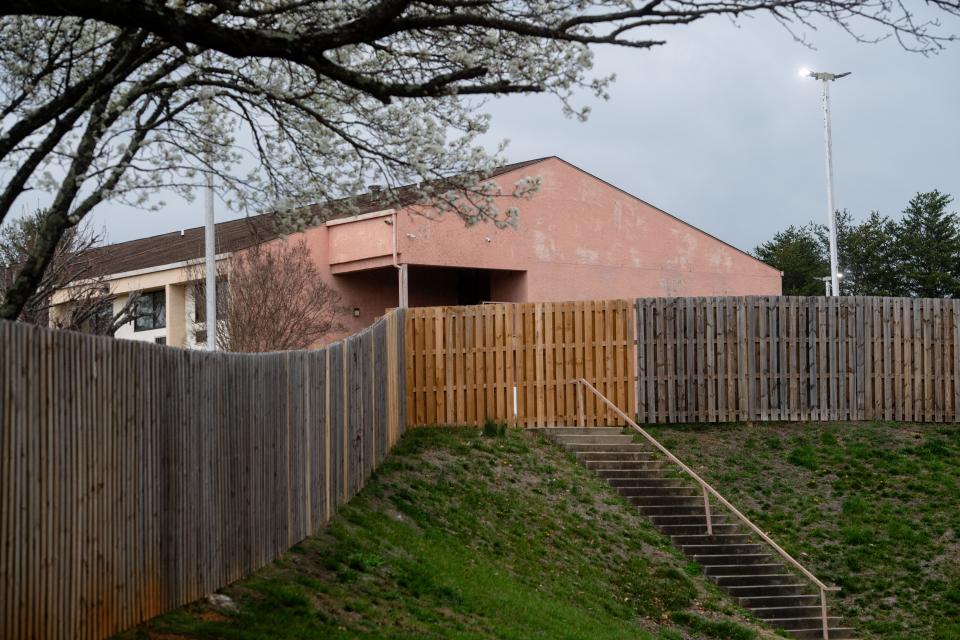
“No one is happy with the situation we are currently in, but we are a well capitalized asset manager, we’ve already made it clear to the City Council that anything they needed or want us to do in the short- to intermediate-term to ensure the property is well taken care of in its current state, from a health and safety standpoint, we’re happy to do,” Carpenter said. “I think, realistically, it’s going to be three to six months until there is a … definitive plan that has the support of all constituents.”
Buncombe County Sheriff's Department spokesperson Aaron Sarver said Feb. 28 the department was using the building to conduct SWAT training, adding that it was "vacant." Carpenter declined to comment on law enforcement training on the property.
What happened to the Ramada Inn?
Three years ago, the property was poised to become an emergency shelter, the city’s first low-barrier, high-access offering as it looked down the barrel of a burgeoning homelessness crisis.
The city was under contract to purchase the two parcels, at 148 and 150 River Ford Parkway, before abandoning plans in December 2021 after it “became clear that the city could not secure the needed resources to proceed,” Reid said.
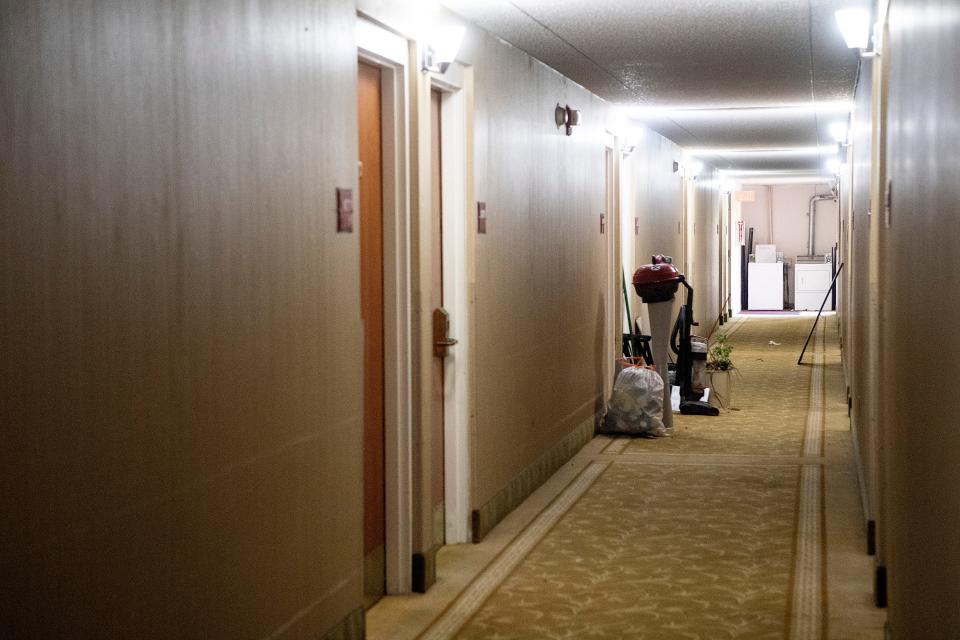
For a year, the Ramada served as a shelter for about 75 people. When that shelter ended in March 2022, unable to secure other housing, several people returned to the streets.
The city authorized the assignment of its contract to Shangri-La, which announced it would convert the property into 113 units of permanent supportive housing for the city's chronically homeless population.
The Ramada was slated for occupancy in August 2023, but amid numerous delays, complications with contractors and apparent "financing" needs, announcements of opening day continued to drag. In December, Shangri-La defaulted on its loan.
“The thing that I really want to emphasize is I think the city very much regrets this outcome,” Reid said.
Further escalating Shangri-La's legal troubles is a complaint filed Jan. 8 by California's Attorney General on behalf of the California Department of Housing and Community Development.
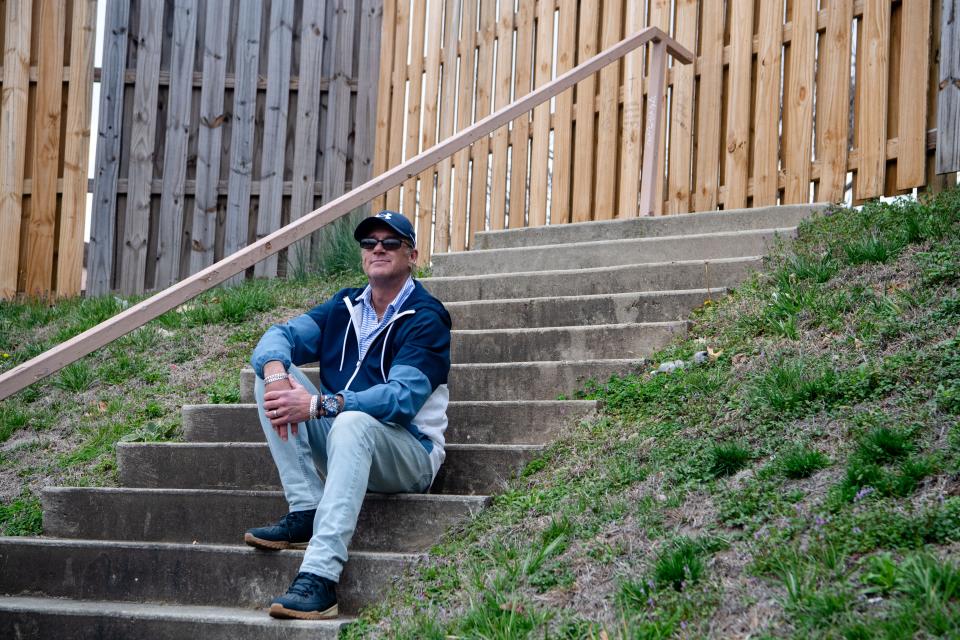
Shangri-La Industries owns seven motels in California that are supposed to be converted to permanent supportive housing. Under California’s Project Homekey, the state awarded Shangri-La $114 million to buy and renovate those properties, according to reporting by the Ventura County Star, part of the USA TODAY network.
The state’s lawsuit accuses Shangri-La and its partners of violating the terms of their agreements with the CDHCD. The suit also alleges violations of federal regulations, since much of the Project Homekey money came from the federal government’s pandemic relief programs.
Shangri-La could not be reached for comment.
The face of Shangri-La
The December 2022 groundbreaking checked all the boxes: golden shovels, smiling developers, optimistic speeches and a photo-op around a mound of staged dirt. But it also put Hall behind the podium.
From the white tent pitched in the hotel parking lot, he gestured where the balcony of his room in the Ramada was just visible, strung with lights and cloth drapings.
"Welcome to my new home," he said. “I am so grateful not only to all of you that have come out here, but for the lives that are going to change because of Shangri-La development and Step Up Second Street.”
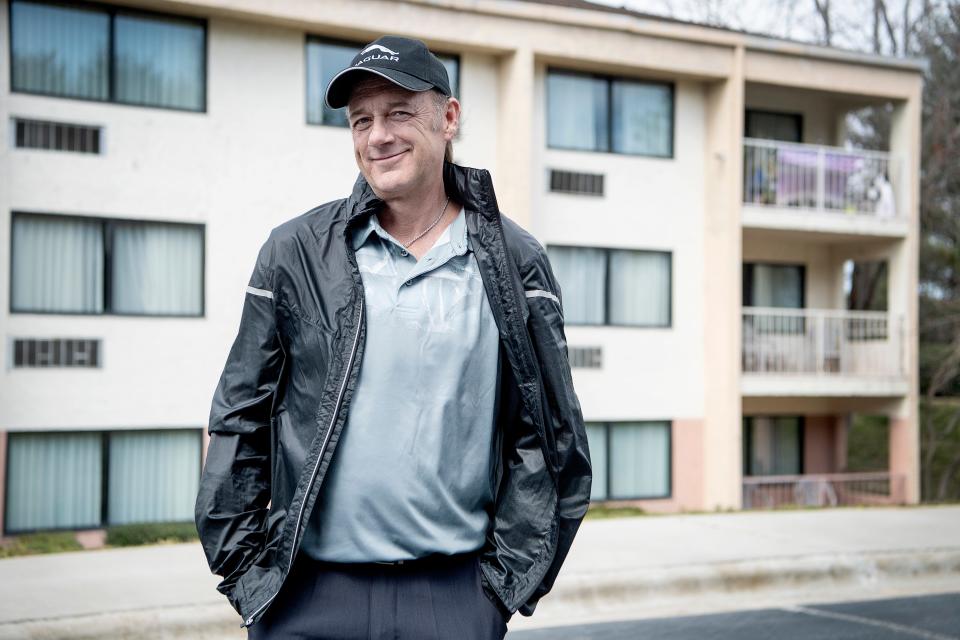
Hall refers to it as “fluff day.” He was put forward as a face of the project in Asheville, a success story, only to be left behind with no word when the project folded, he said.
Hall was among the first residents who moved to the Ramada in spring 2021 when it was functioning as an emergency shelter. He had been homeless in Asheville for about a year. It was something he never expected, he told the Citizen Times in March 2022 — spending days at Pritchard Park, waking up in a sleeping bag covered in 8 inches of snow, or camping in Riverbend Park, a patch of greenspace behind the East Asheville Walmart off I-240.
Hall said residents at the Ramada, while not without hardships, became close. He spearheaded the formation of the Ramada Resident Council and called his room the "Zen lounge," somewhere people could come to air their troubles, problem solve or talk.
When the shelter closed, Shangri-La poised to take ownership, Hall was offered a position by the developer to stay onsite as property manager through construction. By the time of the groundbreaking, the position had become permanent.
Hall lived on the property and cared for the building and grounds, collecting a monthly salary for his work there, pay stubs show.
“All the things that I’ve been fighting for on this land … has been forgotten,” Hall told the Citizen Times in late February. Hall has been living on the property for three years. When Shangri-La lost ownership, Hall remained behind.
“I’m trying to save it,” he said. “This is my home and my welfare and my life. And my everything.”
Hall sees himself as a protector of the property and fears what would happen if he leaves it. He spent time building relationships with the neighboring businesses, trying to change what he called a “6.2 acre stigma … into a part of this community.”
Carpenter said his asset manager was aware Hall was on the property.
Dan Pizzo, who supported the Ramada Resident Council when it formed, and has worked with Hall to address unsheltered homelessness, said Hall had become a “cornerstone” within that slice of East Asheville community.

“He has developed very deep ties to the place,” Pizzo said. “First as a resident, then as a friend and facilitator of an organized voice for the people who were staying there, an advocate. And I also think (of him) as a bridge to the staff and the community that surrounded it. He had pride for the neighborhood, not just the Ramada.”
Hall brought his concerns to HIAC on March 14.
“This place needs to be completed,” Hall told the Citizen Times later of the reason he keeps advocating for the property. “And I want to finish it. If that’s selfish, I’m sorry. But I want to finish this project because there’s 200 people out there who don’t know it yet, and who I might never meet … I’m fighting for their homes.”
What comes next?
Emily Ball, manager of the city’s Homeless Strategy Division, reiterated that it is a “transitional time” for the area’s homeless services response. Currently, HIAC serves as the governing board for the CoC.
An April 25 vote will establish a new board, moving the body out from under the city and county. On Feb. 29 the new membership body formally adopted a charter, which outlined the new governance structure.
Unlike the original Ramada project, with the city leading the charge, "We would all hope to not see anyone acting alone in pursuit of a project on that property,” Ball said of the approach under the new CoC structure.
Instead, project planning would be considered by the CoC as a whole — looking at partners, resources and community needs.
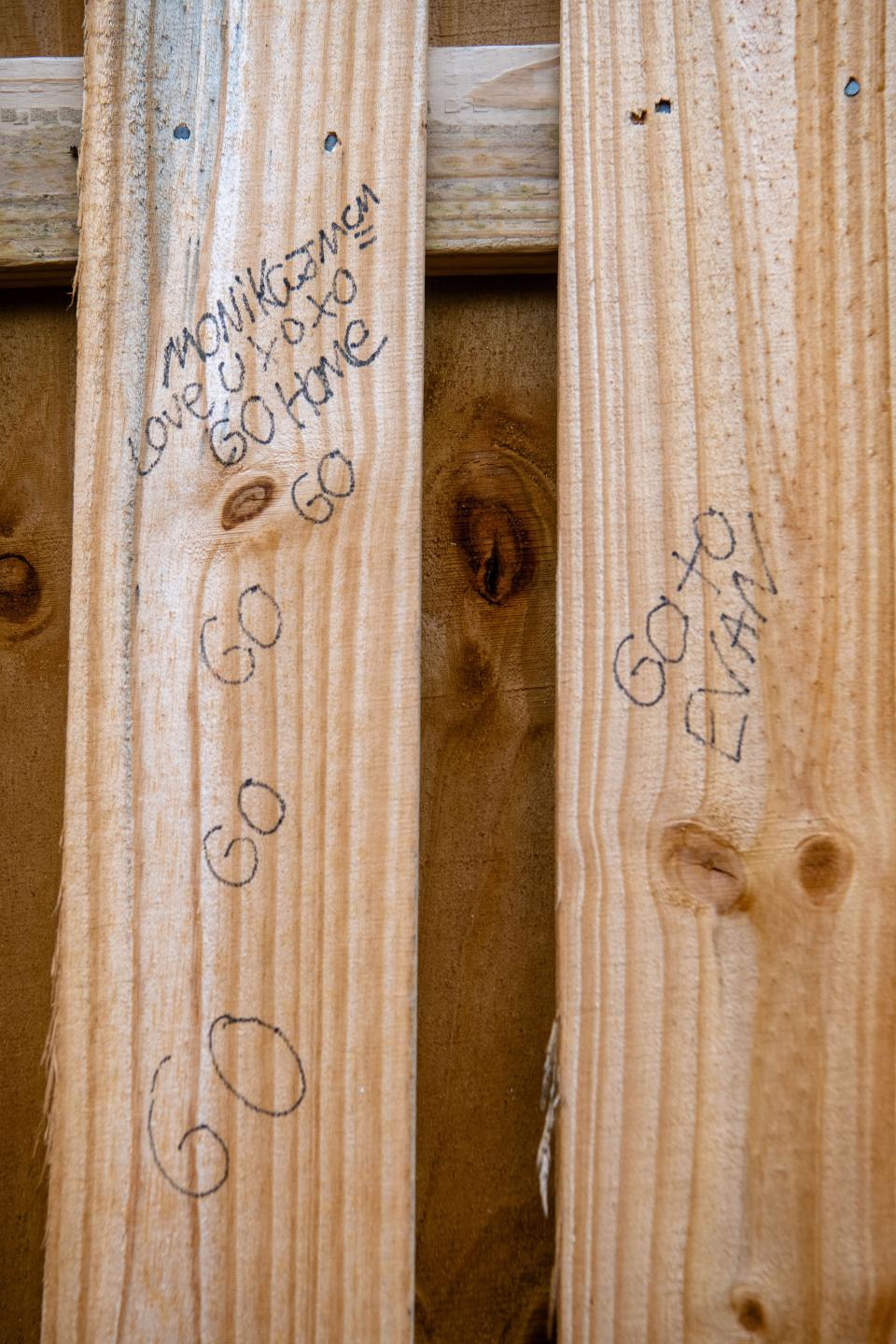
Reid said she was looking forward to how the CoC could be used to “help us transition into the next steps with the Ramada.”
The initial funding the city obligated to the project — $1.5 million intended to fund the first three years of supportive services — was never spent, Reid reminded HIAC members. Any future allocations of those funds would fall to City Council.
“Communities that see the best results on homelessness have a unified approach, and the Continuum of Care is creating the platform for us to build our local approach together,” Ball said later, via email.
“We'll only get out of it what we put into it though, so its success is dependent on all of us fully participating. If folks across our community — providers, funders, government, neighborhoods, businesses, people who've experienced homelessness before — will invest their efforts in this, we will see progress on homelessness.”
More: Ramada developer sued by California Attorney General. What does this mean for Asheville?
More: Asheville's Ramada Inn shelter closes to homeless; 25 residents left without housing
Sarah Honosky is the city government reporter for the Asheville Citizen Times, part of the USA TODAY Network. News Tips? Email [email protected] or message on Twitter at @slhonosky. Please support local, daily journalism with a subscription to the Citizen Times.
This article originally appeared on Asheville Citizen Times: After foreclosure, what comes next for East Asheville's Ramada Inn?
